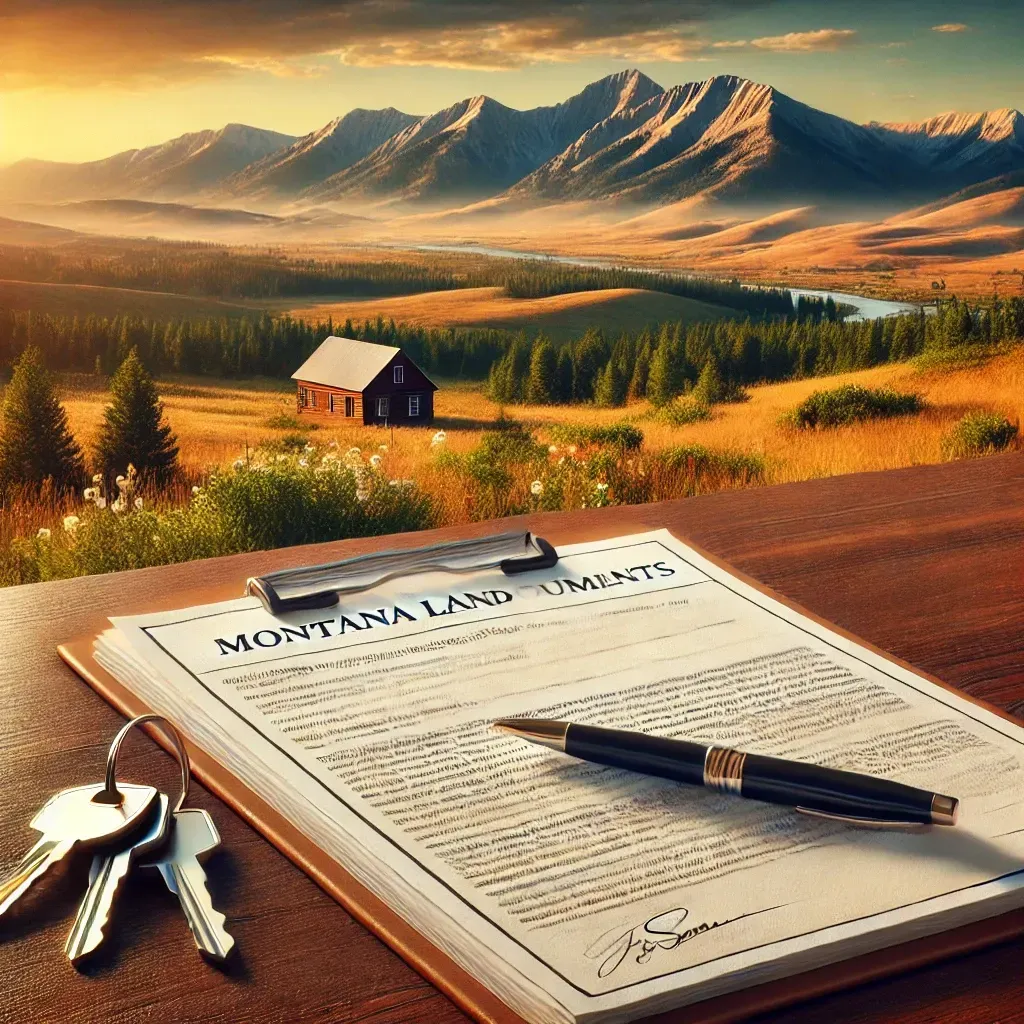
The Paperwork You Need to Buy and Sell Land in Montana
Montana, known as the "Treasure State," boasts breathtaking landscapes from rolling prairies to majestic mountains. If you're considering investing in or selling land in this state, understanding the necessary paperwork is crucial for a smooth transaction.
Montana: Vast Opportunities Await
Covering 145,552 square miles, Montana is immense in size and rich in agricultural heritage. Approximately 58 million acres are devoted to farming, as reported by the USDA, with average farms spanning over 2,156 acres.
But it’s not just farmland; the Montana Department of Natural Resources and Conservation manages around 5.2 million acres of state trust lands, benefiting public schools and enhancing land use dynamics.
Navigating the Land Market
The Montana land market can be unpredictable, influenced by various factors like zoning and location. Selling land, especially vacant land, often takes time – typically 1-2 years. For those who need quick cash, companies like Landforcashmoney.com provide faster offers, albeit at a lower price point.
Essential Paperwork for Buying Land
1. Purchase Agreement: This outlines the sale price, property description, contingencies, closing timeline, and earnest money details. Read it thoroughly.
2. Title Search and Insurance: Ensure the seller holds clear title and there are no liens or road easements that could complicate your ownership. Title insurance protects your investment.
3. Land Survey: A survey delineates boundaries, helping avoid disputes with neighbors.
4. Environmental Assessment: This checks for potential issues, like contamination – crucial if you plan to develop the land.
5. Financing Documents: If financing is needed, lenders will require an application, proof of income, credit reports, and a land appraisal.
6. The Deed: The final document signifies ownership. Options in Montana include Warranty Deed (most protective), Quitclaim Deed (less protective), and Grant Deed (balanced protection).
Important Paperwork for Selling Land
1. Property Disclosure: While not mandatory for vacant land, disclosing known issues fosters trust.
2. Tax Records: Provide recent tax bills to showcase your financial responsibility.
3. Utilities Information: Detail existing utilities and offer insights on obtaining them if they aren't present.
4. Zoning and Land Use Regulations: Inform buyers about permissible land uses to avoid future conflicts.
5. Marketing Materials: Invest in quality photos and possibly drone footage to highlight your land's potential.
Closing the Deal
As you enter the closing phase, be prepared to handle:
- A closing statement outlining all financial aspects.
- Realty Transfer Certificate, ensuring legal compliance.
- Numerous signatures and notarizations.
The Value of Professional Help
Considering the complexities of land transactions, professional guidance is invaluable. Collaborate with a dedicated real estate agent, attorney, title company, surveyor, and environmental consultant to navigate the nuances.
Conclusion
Buying or selling land in Montana requires thorough understanding and preparation of various documents. The land market's unpredictability means taking time to understand every detail of the paperwork is essential. For expedited sales, companies like Landforcashmoney.com can provide cash offers.
Ultimately, whether you seek to buy or sell, prioritize understanding your commitments. Ask questions, seek professional advice, and enjoy the process of securing your piece of Montana’s breathtaking landscape. Remember, this is more than just a transaction; it’s an investment in Big Sky Country.



